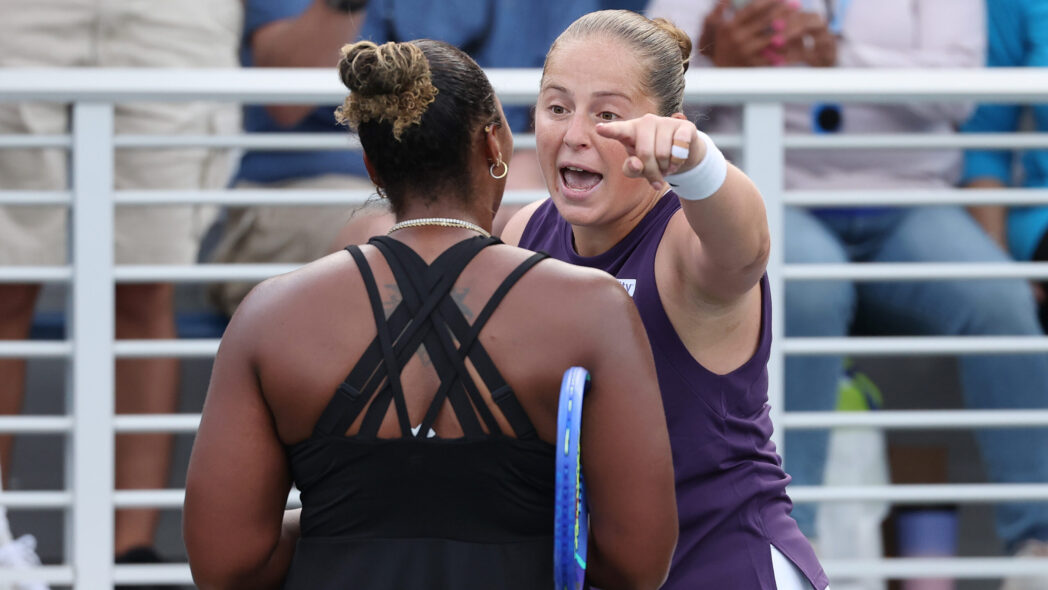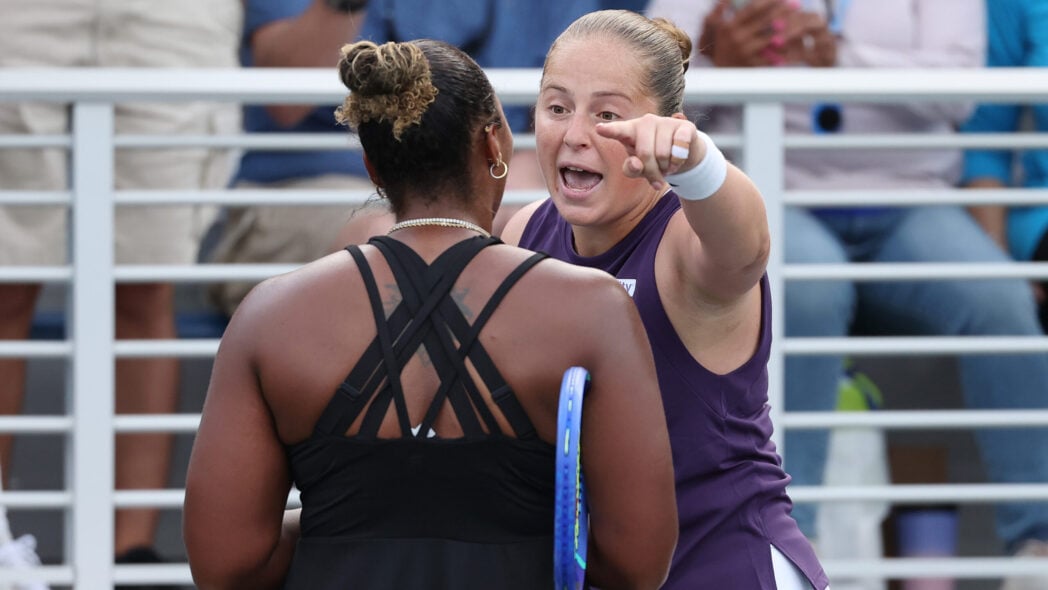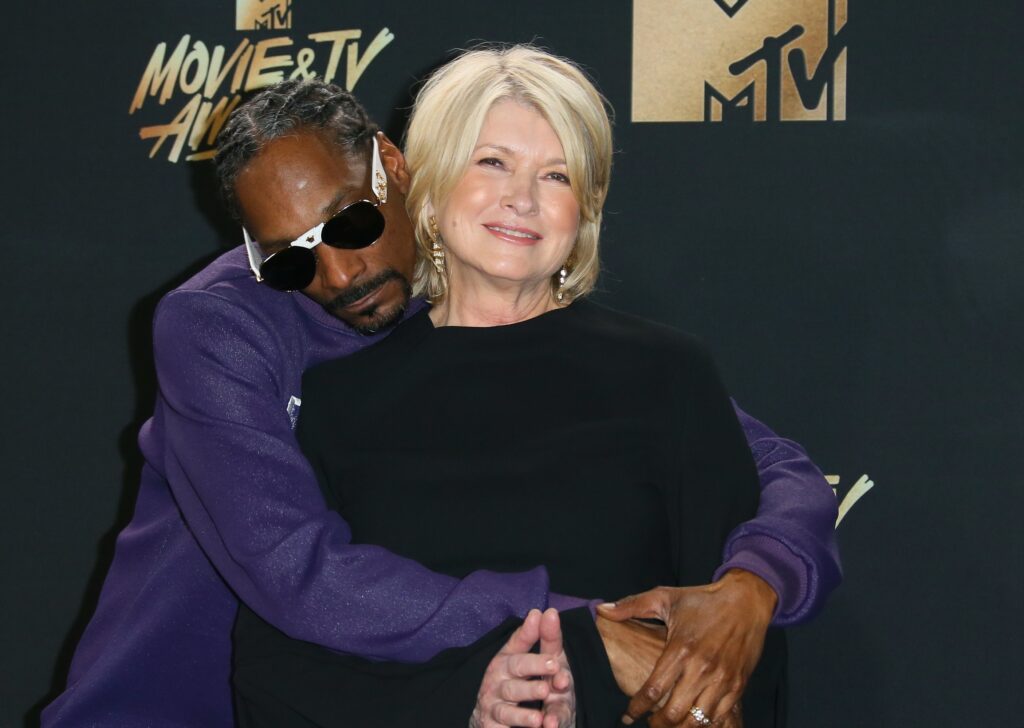After Jelena Ostapenko said Taylor Townsend had “no class” and “no education” during a heated post-match exchange during the US Open, other Black players are coming to Townsend’s defense.
On Thursday, August 28, Naomi Osaka, who is of Japanese and Haitian descent, told reporters during a press conference that the remarks were “one of the worst things you can say to a Black tennis player in a majority white sport.”
“I know Taylor and I know how hard she’s worked and I know how smart she is,” she said. “She’s the furthest thing from uneducated or anything like that.”
Osaka added, “But if you’re, like, genuinely asking me about the history of Ostapenko, I don’t think that’s the craziest thing she’s said. I’m going to be honest,”
“I think it’s ill timing and the worst person you could have ever said it to,” she continued. “And I don’t know if she knows the history of it in America.”
Since the moment has led to a considerable amount of backlash for Ostapenko, Osaka noted, “I know she’s never going to say that ever again in her life.”
Meanwhile, Coco Gauff echoed Osaka’s condemnation during a press conference after her own match on Thursday.
“I think it was a heat-of-the-moment thing. I think Jelena was probably feeling emotions after she lost,” Gauff said. “I do think that it shouldn’t have been said, regardless of how you’re feeling.”
She added, “Knowing Taylor personally, she’s the opposite of that. She’s one of the nicest people I’ve ever met. Whenever I’ve had a tough moment on court, she’s texting me checking in on how I am. I really hate to see that.”

Gauff also noted that for many, this may be the first time they’re learning about Townsend, something the fellow tennis player felt might be unfair.
“Maybe this is some of the first people hearing who Taylor Townsend is. I don’t want that to be the main focus of who she is. She’s a lot more than that,” Gauff explained. “She’s a mom, she’s a great friend, a talented tennis player and a good person. At the end of this tournament, I hope that people will do a deep dive into her and get to know her more than what was said in the previous match.”
Reiterating those sentiments, 2017 US Open women’s singles champion Sloane Stephens also noted her frustration that the moment she condemned might overshadow Townsend’s success.
“I don’t like the fact that she’s playing some of the best tennis of her life, she’s gotten to #1 in the world in doubles, she’s playing amazing singles, and these are the types of situations she’s dealing with,” Stephens said. “This should be celebratory. This should be happy. She shouldn’t have to be dealing with this outside situation.”
When it comes to Ostapenko, Stephens said, “I do think Ostapenko is a great player. She didn’t show her class and education here.”
The controversy began after Townsend’s second-round win over Ostapenko on Wednesday, August 27. Following the match, Ostapenko confronted Townsend at the net, accusing her of lacking “class” and “education” because she did not apologize for winning a point off a net cord.
Osaka’s point about timing may have been referring to the fact that the 2025 US Open is marking the 75th anniversary of Althea Gibson breaking barriers as the first Black player to compete at the tournament. The celebration has been marked with tributes ranging from in-stadium films narrated by Venus Williams to a Florida A&M University marching band performance honoring Gibson’s legacy. Against that backdrop, Ostapenko’s words are that much more jarring.
Calling a Black person “uneducated” or “classless” isn’t just an insult. It taps into Jim Crow–era tropes that sought to demean Black people as intellectually inferior and socially unworthy, justifying their exclusion from schools and other public spaces.
Ostapenko later defended herself in a lengthy post to her Instagram stories, per People magazine, insisting she is not racist and saying her frustration was about etiquette, not race.
“I was NEVER racist in my life and I respect all nations of people in the world, for me it doesn’t matter where you come from,” she wrote, while stopping short of offering a direct apology.





